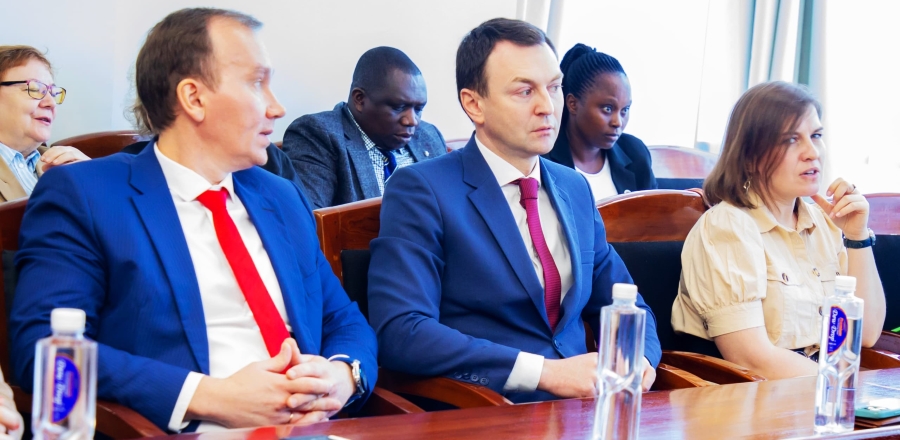Russia to assist Tanzania with satellites and drones for aerial surveillance of country’s forests
Russia will assist Tanzania to conduct scientific research, monitoring and aerial surveillance over the country’s vast forested areas.
Under the new mutual agreement, Moscow and Dar-es-salaam plan to work together in strengthening conservation and management of forests aiming at protecting resources and boosting ecotourism.
Russia will thus provide Tanzania with the cloud-based technology and aerial patrol gadgets for including top quality and high range drones as well as modern satellite systems.
Under the new arrangement, Tanzanian personnel will undergo special training programs on the use of modern forests and wilderness surveillance devices, the installation of relevant software programs and running the same.
That was stated by the Vice Rector for scientific and international activities at Russia’s Saint Petersburg State Forest Technical University Prof. Alexander Dobrovolsky, who lead a special delegation of experts in the field of forestry from Moscow.
The delegation of ten Russian experts in forest conservation is in Tanzania to explore new areas of cooperation with their local counterparts.
They will work together in mainly fields of research and development of a modern system to improve conservation of protected areas in the country.

The Russian delegation held an audience with the Minister of Natural Resources and Tourism, Ambassador Dr Pindi Chana, in Dodoma shortly after arriving from Morogoro aboard the electric train.
In attendance were officers from the ministry, the Tanzania Forestry Services (TFS), Sokoine University of Agriculture (SUA), Tanzania Forestry Research Institute (TAFORI), and the Tanzania Forest Industrial Training Institute (TFTI).
Minister Pindi Chana said Tanzania needs urgent measures to address existing challenges on forest management and conservation.
According to the Minister, forests cover more than 48 million hectares of the land in Tanzania, equivalent to 55 percent of total surface area adding that the forestry sector contributes 3 percent of Gross Domestic Product (GDP), employing over 2000 workers.
But despite the importance of forestry Tanzania still suffers massive rates of irresponsible tree harvesting and environment destruction, therefore the new cooperation with Russia was highly welcome.
Speaking on behalf of the Russian delegation, Prof. Dobrovolsky said they have decided to work with Tanzania because Moscow and Dar have long-existed bilateral cooperation dating back to the early 1960s.
The Conservation Commissioner of Tanzania Forest Service Agency (TFS) Professor Dos Santos Silayo said the cooperation with Russia comes in handy in pushing for improved performance in the country’ s conservation sector.
According to Prof Silayo, Russia has taken great strides in the world, as far as using high scientific systems to monitor and protect forests is concerned and therefore Tanzania stands to benefit from the partnership.
The TFS Commissioner added that Artificial Intelligence (AI) has become an important tool in forest management, with the country looking forward to its full adaptation.

